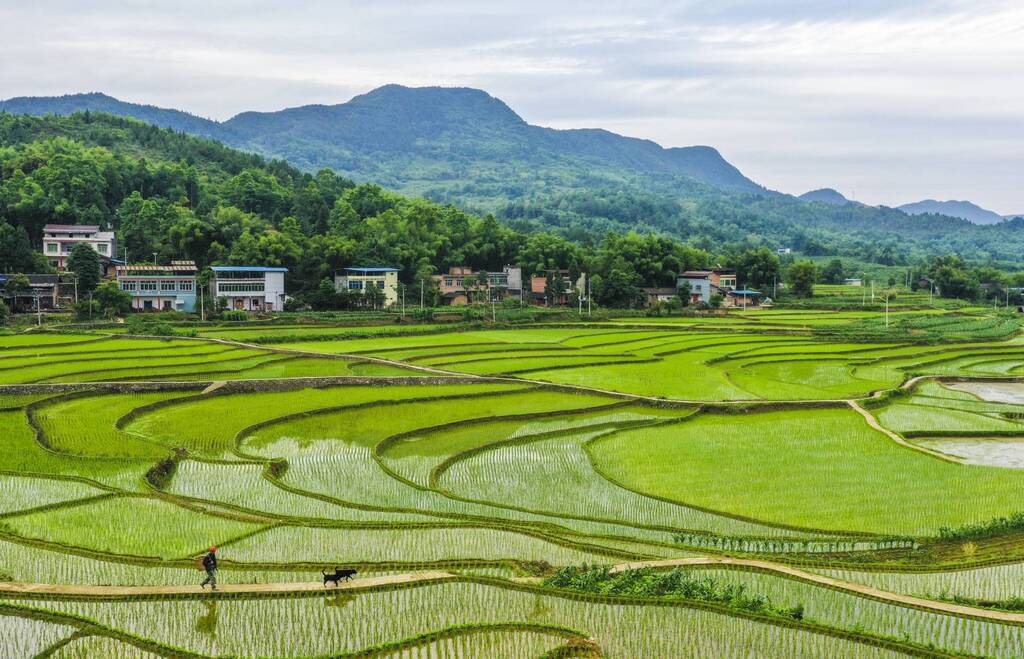 Bridging News
Bridging News
Pioneering Wetland Conservation and Sustainable Growth in Chongqing's Ecological Transformation
Chongqing - In recent years, Liangping District has prioritized water management and urban wetland revitalization, restoring micro wetlands in rural areas and enhancing urban wetland quality. According to a press conference on the special industries of Chongqing Liangping District on Thursday, the district launched three tourism themes—Bamboo Forest, Wetlands, and Countryside—along with four premium travel routes, in late September. These initiatives have significantly boosted tourism, with a remarkable 39% increase in visitor numbers and revenue during the National Day holiday.
As one of the world's 43 International Wetland Cities, Liangping continues integrating its unique geographical features into a thriving ecological network, promoting environmental sustainability and economic growth.

Shuanggui Lake Wetland Scenic Area. (Photo/Liangping District)
As one of the world's 43 International Wetland Cities and the only one in Southwest China, Liangping has garnered global recognition. This achievement is closely tied to its geographical uniqueness. With an area of 1,892 square kilometers, Liangping lacks large rivers but is enriched by winding streams and small bodies of water.
The district has integrated these small wetlands into rural landscapes, connecting forests, ponds, canals, rice fields, rivers, and villages into a unified ecological network. This approach has not only improved the rural environment but also contributed to the development of Chongqing's largest eco-fishery park, where sustainable fishing and water conservation coexist.
In urban areas, Liangping has focused on creating an ecological loop with the Shuanggui Lake Wetland as its core, forming a 30-square-kilometer urban wetland system. The district has revitalized its six rivers, over 400 streams, 78 large lakes and reservoirs, and thousands of ponds and canals, turning Liangping into a picturesque and livable area where wetlands are visible at every turn.
Liangping has also embraced cutting-edge technology to manage and protect its wetlands. The district monitors microclimates, water levels, and soil conditions by incorporating IoT, cloud computing, and AI. Liangping's AI-powered bird monitoring system at Shuanggui Lake has been upgraded to improve real-time data collection on bird populations and trends. These innovations have enabled Liangping to build Chongqing's first smart wetland park.
Liangping's wetland strategy is not only preserving the environment but also generating economic benefits. During a recent press conference, District Party Secretary Qian Jianchao highlighted the potential of combining small wetland projects with organic farming, ecological tourism, and environmental education.

Liangping Tiemen Town's Changtang Village resembles a picturesque landscape painting of mountains and fields. (Photo/Liangping District)
One example is the Chuanxi Fishing Village, which has implemented an eco-friendly wetland agriculture model. This initiative supports organic crops and fishery production, generating over 2 billion yuan (about USD 280 million ) annually and placing the village among China's top rural industries for three consecutive years.
Liangping is also home to several nature education institutions and tourism hubs, including the Shuanggui Lake Wetland Scenic Area and eco-tourism sites focused on rice farming. With its growing network of wetland-themed homestays and camping grounds, Liangping attracted 15 million visitors in 2023, contributing nearly 10 billion yuan to the local economy.
The success of Liangping's "small wetlands, big ecology" approach has positioned it as a leader in sustainable rural-urban integration, blending environmental protection with economic growth.
 Related Stories
Related Stories